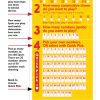Step right up, folks! Ever wondered how online poker tournaments work? Well, you’re in luck because I’ve got the inside scoop for you.
Picture this: you’re sitting at your computer, chips piled up, ready to take on players from around the world. But how does it all actually work? Let’s dive in and find out.
In online poker tournaments, players compete against each other in a virtual setting, battling it out for the ultimate prize. So, how does everyone get a fair shot? Stay tuned and I’ll spill the beans on the secrets of online poker tournaments.
- Choose a reputable online poker platform.
- Create an account and fund it with real money.
- Select a tournament type and buy-in level.
- Receive a stack of virtual chips and join a table.
- Play against opponents and aim to accumulate chips.
- As blinds increase, adapt your strategy.
- Continue playing until you’re the last player standing or reach a certain ranking.
- Collect your winnings and celebrate your success!

How Do Online Poker Tournaments Work?
Online poker tournaments have become immensely popular over the years, attracting players from all around the world. These tournaments offer players the opportunity to test their skills against others, compete for substantial prize pools, and experience the thrill of online poker on a grand scale. In this article, we will delve into the inner workings of online poker tournaments, exploring everything from registration and structure to strategies and etiquette.
The Basics of Online Poker Tournaments
Before diving into the details, let’s start with the basics. Online poker tournaments are structured competitions where players from various locations compete against each other in a virtual poker room. These tournaments can vary in size, format, and prize pool. They typically have a buy-in fee, which establishes the prize pool, and are played on different variants of poker such as Texas Hold’em and Omaha. The ultimate goal is to accumulate chips and outlast opponents to secure a top position on the tournament leaderboard.
1. Registration and Buy-in:
The first step to participating in an online poker tournament is to register for the event. Players usually need to have an account with the online poker site hosting the tournament. After selecting the tournament, players must pay the buy-in fee, which is the cost to enter the competition. The buy-in fee can vary greatly depending on the tournament’s size and stakes. Some tournaments may be free to enter, while others may have buy-ins ranging from a few dollars to hundreds or even thousands.
Once the registration and buy-in process is complete, players will receive a designated seat at a virtual table. The tournament will then begin at a scheduled time, and players will be dealt their starting chips. It’s important to note that some tournaments may have late registration periods, which allow players to join even after the event has started.
2. Tournament Structure and Phases:
Online poker tournaments follow a predetermined structure and progress through different phases. The most common structure is a multi-table tournament (MTT), where hundreds or even thousands of players compete simultaneously across multiple tables. As players are eliminated, tables are consolidated, and the tournament continues until only one player remains. Another popular format is the Sit & Go tournament (SNG), which starts as soon as enough players have registered.
MTTs and SNGs are further divided into different phases, such as the early stage, middle stage, and the bubble. During the early stage, players have deeper chip stacks relative to the blinds, allowing for more strategic play. As the tournament progresses, blinds increase, and players need to adapt their strategies accordingly. The bubble phase refers to the point just before the money is reached, where players become more cautious to secure a cash prize.
The final phase of a tournament is the final table, where the remaining players compete for the top positions and the largest prizes. The final table usually consists of nine to ten players, and the competition becomes more intense. The tournament ends when a single player accumulates all the chips and emerges as the champion.
3. Betting, Blinds, and Antes:
In online poker tournaments, the betting structure usually revolves around blinds and antes. Blinds are forced bets that two players sitting to the left of the dealer must place before each hand. The sizes of the blinds increase as the tournament progresses, ensuring that there is always something at stake and encouraging active play.
Antes, on the other hand, are small mandatory bets that every player at the table must contribute before each hand. Antes become relevant in the later stages of a tournament, adding more chips to the pot and increasing the stakes. The inclusion of antes leads to more aggressive play and strategic decisions as players try to accumulate chips and maintain their position in the tournament.
4. Strategies and Etiquette:
Successful online poker tournament players employ various strategies to navigate the competition and maximize their chances of winning. These strategies range from playing tight or aggressive to adapting to different stages of the tournament. It is crucial to adapt and adjust your strategy based on the number of chips you have, the size of the blinds, and the remaining players in the tournament.
Etiquette is also an essential aspect of online poker tournaments. Players are expected to follow the rules, maintain proper conduct, and be respectful to their opponents. Online poker platforms usually have chat features where players can interact, but it’s important to avoid offensive or disruptive behavior. Being courteous and maintaining a friendly atmosphere enhances the overall experience for everyone involved.
Online Poker Tournament Tips and Tricks
Beyond the basics, there are several tips and tricks that can help improve your performance in online poker tournaments. Here are three key pieces of advice:
1. Practice Bankroll Management:
Bankroll management is crucial for any poker player, particularly when it comes to online poker tournaments. Set a budget for yourself and never risk more than you can afford to lose. It’s essential to have enough buy-ins to weather the variance of tournament play and give yourself multiple chances to succeed. Stick to your bankroll management plan to ensure longevity in the tournament scene.
2. Understand Positional Advantage:
Positional advantage refers to the order in which players act during a hand. It’s essential to understand how position affects your decision-making and use it to your advantage. Being in late position allows you to gather information about your opponents’ actions before making your move, while being in early position requires more caution as you have less information to work with. Use your position wisely to make more informed decisions and maximize your chances of success.
3. Learn to Read Opponents:
Online poker tournaments often involve playing against unfamiliar opponents. Learning to read your opponents’ betting patterns, behavior, and tendencies can give you a significant advantage. Look for patterns in their play and adapt accordingly. Are they aggressive or passive? Do they bluff frequently? Understanding your opponents’ tendencies can help you make better decisions and exploit their weaknesses.
Choosing the Right Online Poker Tournament for You
With numerous online poker tournaments available, it’s important to choose the right one for your skill level and preferences. Here are three factors to consider:
1. Skill Level:
If you’re new to online poker tournaments, consider starting with smaller buy-in events or freerolls. These tournaments are usually more forgiving and provide a chance to gain experience without risking a substantial investment. As you improve, you can gradually move up to tournaments with higher stakes and tougher competition.
2. Format and Structure:
Each online poker tournament has its own format and structure, so it’s important to find one that suits your preferences. Some players enjoy the fast-paced nature of Sit & Go tournaments, while others prefer the longer duration and larger prize pools of multi-table tournaments. Experiment with different formats to see what resonates with you the most.
3. Stakes and Prize Pools:
The stakes and prize pools can vary significantly among online poker tournaments. Consider your budget and goals when choosing a tournament. If you’re looking to play for bigger prizes, opt for tournaments with higher buy-ins and larger guaranteed prize pools. If you’re more interested in the experience and having fun, lower-stakes tournaments may be a better fit.
By considering these factors, you can find an online poker tournament that aligns with your skill level, preferences, and goals.
Key Takeaways: How Do Online Poker Tournaments Work?
- Online poker tournaments are virtual card game competitions that take place on poker websites.
- Players use their computers or mobile devices to participate and compete against each other.
- Tournaments have different formats, such as Sit & Go, scheduled tournaments, and multi-table tournaments.
- Players start with a certain number of chips and aim to gather as many as possible to stay in the game.
- The winner of a tournament is typically the player who accumulates all the chips or wins a final showdown.
Frequently Asked Questions
Curious about how online poker tournaments work? Check out these frequently asked questions to learn more!
1. How are online poker tournaments structured?
In online poker tournaments, players pay a buy-in to enter the tournament and receive a set number of chips. The goal is to accumulate as many chips as possible by playing poker hands. As players lose their chips, they are eliminated from the tournament. Tournaments continue until only one player remains, who is declared the winner.
Tournaments are usually structured with increasing levels or blinds, which determine the minimum bet for each hand. As the tournament progresses, blinds increase to maintain the pace and pressure on players. This ensures that the game doesn’t go on forever and keeps things interesting.
2. Can anyone participate in online poker tournaments?
Yes, online poker tournaments are open to anyone who meets the age requirements set by the platform or website hosting the tournament. Most poker sites require players to be at least 18 years old, but this may vary depending on jurisdiction. Some sites also offer special tournaments exclusively for certain groups, such as beginners or VIP players.
Keep in mind that each tournament may have its own specific requirements, such as buy-ins, skill levels, or tournament types. It’s important to read the tournament rules before joining to ensure you meet all the necessary criteria.
3. How do online poker tournament payouts work?
In online poker tournaments, the prize pool is usually determined by the number of participants and the buy-in amount. The tournament’s payout structure dictates how the prize pool is distributed among the top finishers. Generally, the top-ranking players receive a larger portion of the prize pool, with the winner receiving the biggest share.
The specific payout structure can vary depending on the tournament format. Some tournaments offer a flat payout structure, where the top percentage of players all receive a similar prize amount. Others may have a top-heavy structure, with the majority of the prize pool going to the top few finishers.
4. Can you play multiple online poker tournaments at once?
Yes, many online poker platforms allow players to participate in multiple tournaments simultaneously. This is made possible through the use of multi-tabling, where players can open multiple tables and play different tournaments simultaneously. However, keep in mind that playing multiple tournaments at once requires great focus and multitasking skills, as you’ll need to make quick decisions across different tables.
It’s important to note that the ability to multi-table may depend on the poker platform or software you are using. Some platforms may have restrictions on the number of tournaments or tables a player can join at the same time.
5. How do online poker tournaments differ from live tournaments?
Online poker tournaments differ from live tournaments primarily in their format and playing environment. While live tournaments are played in-person at physical locations, online tournaments take place on digital platforms. This means you can participate from the comfort of your own home.
Another notable difference is the speed of play. Online tournaments tend to progress more quickly than live tournaments as there are no physical cards to deal, and the software handles the shuffling and distribution. Additionally, online tournaments often have a larger player pool, giving you the opportunity to play against a wider range of opponents.
Simple Trick to Win Poker Tournaments (Works Every Time!)
Summary
Online poker tournaments are virtual competitions where players from all over the world can participate. They work by allowing players to join a specific tournament and play against each other for a chance to win prizes. These tournaments have different formats, such as Sit and Go or Multi-Table Tournaments, and can be played on various online poker platforms.
During a tournament, players start with a specific amount of chips and play a series of poker hands. As they win hands, their chip stack increases, and as they lose hands, it decreases. The goal is to be the last player standing or to have the most chips when the tournament ends. Tournaments can have different buy-ins, prize pools, and elimination rules, and the winner is usually determined based on their final chip count or position in the tournament. Online poker tournaments offer an exciting and competitive environment for players of all skill levels to test their poker skills and potentially win big.









